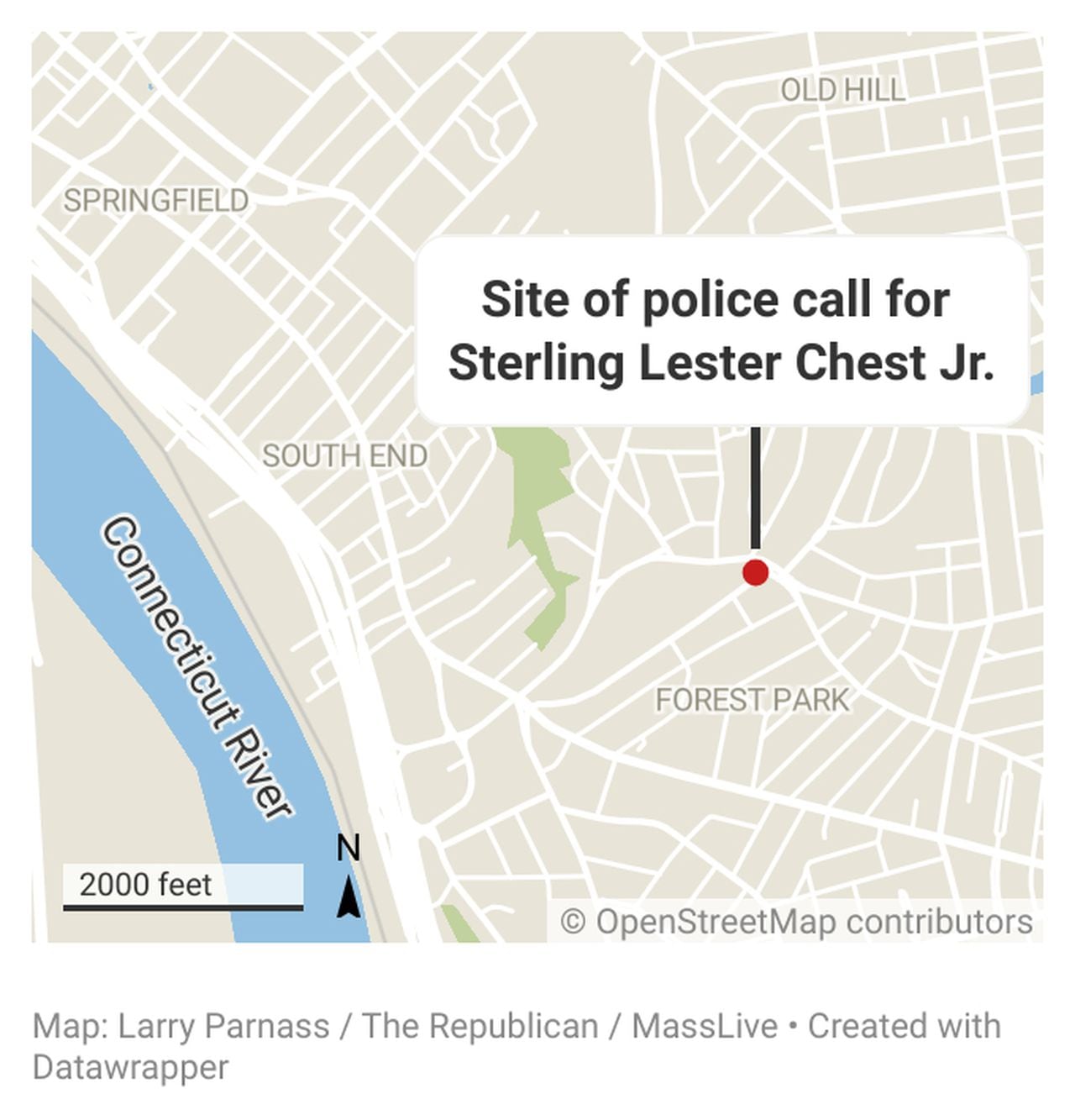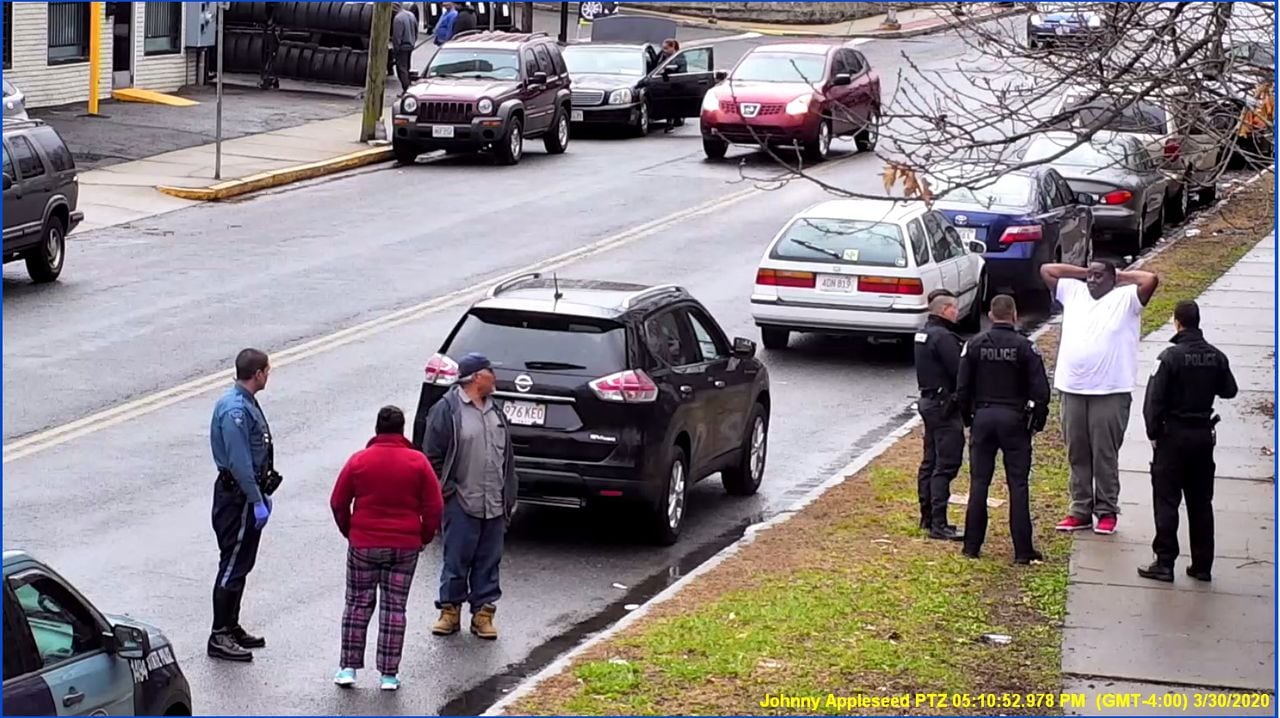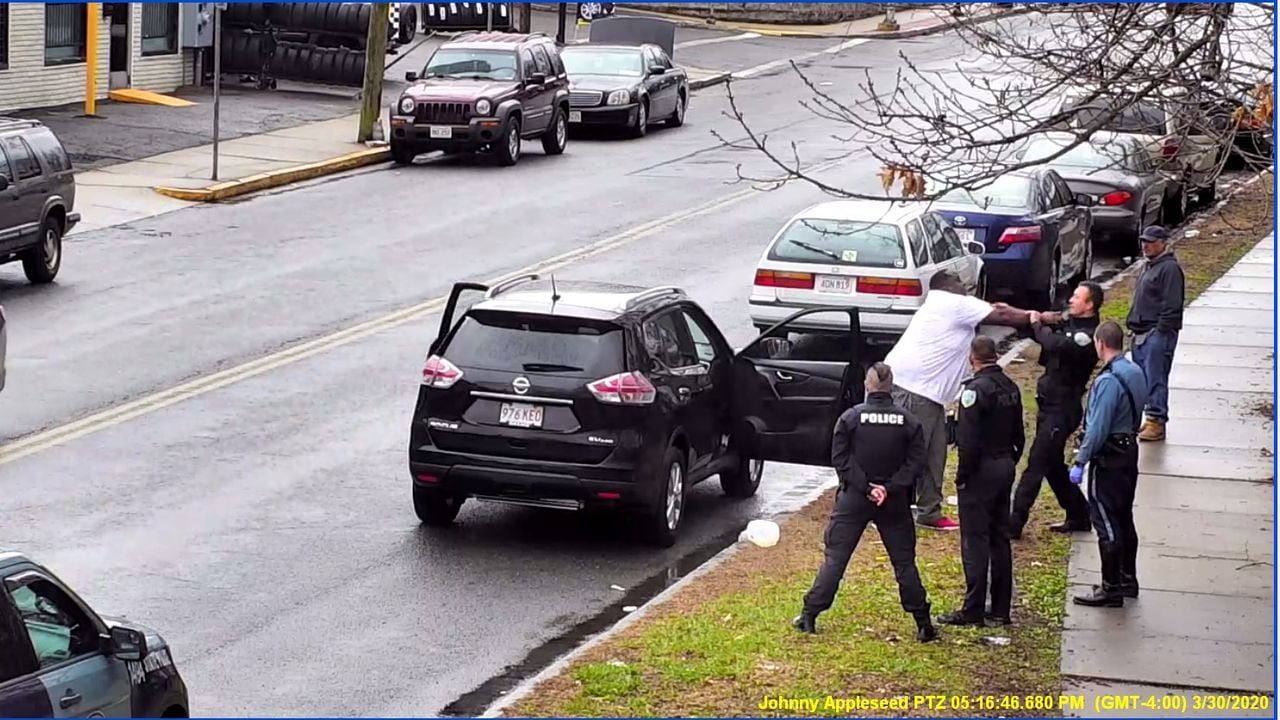SPRINGFIELD — Things started to go bad when Sterling Lester Chest Jr. yelled something about the Bible — and ran through traffic. A woman he knew called Springfield police for help, concerned about his mental state.
Today, Chest’s sister believes that police response, on March 30, 2020, led to her brother’s death. It’s one of many cases across the country where a Black man’s mental distress led to a claim of excessive police force.
In late March 2023, Keely Charles, Chest’s sister and his estate’s representative, filed a civil rights lawsuit in U.S. District Court in Springfield against the city and four police officers alleging excessive force and violation of the Americans with Disabilities Act. As defendants, it names the city and four officers: Joseph Beliveau, Lindsay Tagliapietra, Luis Delgado and Kristopher Carr.
Some of the suit’s other claims, like a wrongful death allegation, were dismissed by a judge last month after the defendants argued they were immune under a state law.
The city’s attorney for the case, Tyler James Kenefick, said the city and police department are defending the suit’s claims, but said he could not comment further on the litigation. In recent court paperwork, Kenefick denied most allegations.
The plaintiff’s attorney, Christopher F. Cava, did not respond to multiple requests for comment.
Just after 5 p.m. on the last Monday of March 2020, police approached a small black SUV where Chest was sitting in the passenger’s seat. The car was parked at the edge of the Forest Park and Six Corners neighborhoods.

Staff
He was experiencing an episode of paranoia when police were called about his well-being, according to the complaint.
The Republican made a public records request to the city for police reports about the incident, but has not yet gotten a formal response. At the time, city police did not yet have a body camera program.
Initially, Chest talked with police on the sidewalk and the scene appeared calm. That’s what surveillance footage recorded nearby reveals, now part of the court record.

Video from the city of Springfield shows Sterling Lester Chest Jr. being brought to a police cruiser on March 30, 2020, on Locust Street. (Video provided by US. Federal District Court)Screenshot from Video provided by US. Federal District Court
Chest got out of the parked car he was in and put his arms above his head and spoke with officers.
“I looked too far into the Bible,” Chest said, according to the complaint. Minutes after police arrived, dispatch got a report of an approved emergency psychiatric hospitalization for Chest, according to the complaint.
An officer handed Chest a jug of water from his car and he took it and shook her hand. He got back into the parked car for a few minutes. His girlfriend, who was with him in the car, said that police were “agitating” Chest while he was sitting in the car and yelling at them through the window, the complaint alleges.

Video from the city of Springfield shows Sterling Lester Chest being brought to a police cruiser on March 30, 2020, on Locust Street. (Video provided by US. Federal District Court)Screenshot from video provided by US. Federal District Court
A few minutes later, Chest got out of the vehicle and, from the video footage, it looks like he says something to the officers and then he pushes them. Police used a stun gun on him and he fell to the ground. They handcuff him and officers spent several minutes trying to get him into the back of one of the several cruisers at the scene, the video shows.
Officers eventually got him into the car. When an ambulance arrived on the scene, Chest remained in the cruiser for approximately 10 minutes until the car drives away, according to the video.
He was then taken to Baystate Medical Center, according to the complaint.
Several days later, on the morning of April 3, 2020, he reported experiencing chest pain at Baystate. He died at age 45.
Nicknamed “Duggie,” Chest grew up Louisiana, according to his obituary. After attending college, he worked as a certified nursing assistant and truck driver. He moved to Springfield to be near family, his obituary says.
“Duggie loved all his family and made it a point to spend time with us all no matter the distance,” his obituary reads. “If you knew him then you also knew a great man, a happy man, a caring man and a loving man.”
He loved Creole food and Jordan shoes, according to his obituary. “When you think of my brother please remember his smile. Please don’t ever forget him, even if it may slip your mind for a while. Now we all know his soul his free and at peace just picture him in heaven, arms wide open, big smile on his face yelling ‘Yah Heard Meh!!!!’”
Charles, Chest’s sister who filed the suit for his estate, could not be reached for comment.
Cause of death
Chest died of cardiac tamponade — a condition in which the heart fills with fluid and can’t pump efficiently — after he had a heart attack, according to his death certificate filed in the Springfield City Clerk’s office.
Under the cause of death, the certificate says it followed a “physical altercation with police including electromechanical shock and restraints for the management of an acute psychotic episode.”

Portion of death certificate of Sterling Lester Chest Jr. who died in April 2020 after being tased by Springfield police the month before. (Don Treeger / The Republican) 1/4/2024The Republican
The medical examiner lists the manner of death as undetermined, and notes that it’s not the result of an injury. Heart disease and diabetes also contributed, but did not cause his death, the report says.
A 2017 Reuters investigation found about 1,000 incidents in which police used a stun gun on someone and they then died. In a quarter of the cases, the person was having a mental health crisis or neurological issue, according to the outlet’s findings.
Usually, the stun gun was one of other types of force used. The company told Reuters that Tasers have killed only 24 people, most from injuries from falls after a stun gun was used and none directly from the electrical shock.
In Springfield, Chest’s case isn’t the only police use of a Taser facing legal scrutiny. Leon Davis is facing criminal charges after he Tased a woman who said she was pregnant in a 2020 arrest captured in body camera footage. How city police use force has also been under question. In 2022, the city signed a consent decree with the U.S. Department of Justice addressing police use of force after a federal investigation.
In the lawsuit over Chest’s death, the plaintiff argues that because Chest had mental health issues and was obese — court filings say he was more than 400 pounds — that he was disabled and police discriminated against him by not getting him medical attention “despite his clear signs of urgent medical distress.”
They “were objectively unreasonable towards, and deliberately indifferent to his serious medical needs,” the complaint says.

A panoramic view of the corner of Locust and Dickinson streets in Springfield. (Hoang ‘Leon’ Nguyen / The Republican)Leon Nguyen
The suit blames the city and officers for his death. “Mr. Chest died because of the Defendants’ actions and inactions,” the complaint says.
The city denies the allegations and wrongdoing. Police acted according to department rules and in self-defense, its formal response, filed in court last week, says.
“These actions were necessary and appropriate responses to perceived threats or harmful situations as encountered by the Defendant Officers in the course of their duties,” Kenefick writes in his response. He represents the city and Officer Carr. The other three officers named as defendants are represented by attorney Kevin B. Coyle, who could not be reached for comment.
Police also attempted to de-escalate and their force was reasonable, Kenefick’s response says.
After the defendants asked the court to dismiss the charges, Judge Mark G. Mastroianni weighed in last month.
The excessive force claims are plausible, Mastroianni determined, and he also allowed the ADA violation claim to move forward.
But Mastroianni dismissed a racial bias claim and a claim the defendants violated Chest’s due process by not getting him medical care, writing in a Dec. 14 judgment that there wasn’t plausible evidence presented that 18 minutes between tasing and going to the hospital killed him.
Mastroianni also dismissed a wrongful death count, saying that under a state law, police were immune in this situation.
Certain professionals — including police officers, doctors, and licensed clinical social workers — can’t face a civil lawsuit from restraining or transporting someone in a psychiatric hospital admission if they are acting under a specific chapter of state law.
The parties are next due in court later this month for a scheduling conference.





